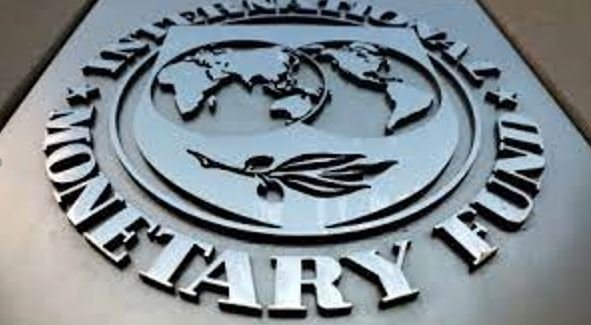Bangladesh’s economy remains robust even amidst a global downturn, calling for measures to address foreign exchange shortages and adeptly navigate a complex international economic terrain
The International Monetary Fund (IMF) raised Bangladesh’s gross domestic product (GDP) growth rate in (2022-2023) fiscal year. Nevertheless, the current fiscal year (2023-2024) has witnessed a deceleration in this growth rate, with it remaining at 6 percent for both years. Achieving a 7 percent growth rate will require a four-year wait, with the possibility of reaching it in FY2027-28.
You can also read: Analysis of IMF conditions and Bangladesh’s stand on economic stability
At the same time, there are expectations of an increase in the government’s foreign currency current account deficit in the current fiscal year, exacerbating the ongoing dollar crisis. However, there is a positive aspect to consider as the inflation rate is forecasted to decline. In the previous fiscal year, it surged to 9.7 percent, but it is anticipated to subside to 7.2 percent by the conclusion of the current fiscal year (2023-2024).

The predictions concerning Bangladesh are elaborated upon in a report titled ‘World Economic Outlook October 2023,’ which was released on Tuesday (10th October 2023) in conjunction with the IMF and World Bank meeting. This report offers a comprehensive analysis of the worldwide economic landscape, with a specific emphasis on Bangladesh.
GDP Growth in Bangladesh
Regarding Bangladesh, the report indicates that the final growth rate for the last fiscal year (2022-2023) may stand at 6 percent. In an earlier report, it was projected that Bangladesh’s growth would reach 5.5 percent in the same period. This reflects a substantial upward adjustment of 10.5 percent in the growth rate.
However, according to data from the Bangladesh Bureau of Statistics, the growth rate reached 6.3 percent until March.

Inflation on a Downward Trajectory
Despite the challenges posed by the slowing GDP growth and the growing foreign currency deficit, there’s a silver lining in the IMF’s report for Bangladesh – the rate of inflation is expected to decline. In the (2022-2023) fiscal year, inflation reached 9.7 percent, posing concerns about the cost of living and economic stability.
The IMF’s latest projections indicate that inflation could drop to 7.2 percent by the end of the current fiscal year (2023-2024). This is welcome news for consumers and businesses alike, as lower inflation typically signifies more stable prices and an improved economic environment.
IMF’s Warning: Global Debt Crisis Looms Over World Economy
The IMF’s ‘World Economic Outlook October 2023’ report isn’t just about Bangladesh; it also provides insights into the global economic landscape. Many countries are expected to return to a positive GDP trend, and inflation rates are predicted to decline worldwide. However, the report highlights that certain developed and underprivileged nations will continue to grapple with significant economic challenges, which may have adverse effects on low-income countries.
Additionally, the global debt crisis is anticipated to worsen in multiple countries, and interest rates are expected to continue rising. These global trends will likely influence Bangladesh’s economic environment, making it crucial for the government and businesses to remain adaptable and responsive to changing conditions.
The International Monetary Fund (IMF) has sounded the alarm on a substantial global challenge that threatens the normalization of the world economy—the external debt crisis. This crisis has been exacerbated by the simultaneous rise in fuel prices and interest rates, two critical factors that can throw the global economy into disarray. In response, many countries have taken measures to curb inflation by raising interest rates and slowing economic activity. However, this delicate balance might be disrupted if energy material prices continue to surge. The ongoing Russia-Ukraine conflict and the decisions of OPEC countries to reduce energy production while increasing prices could significantly hinder the global economy’s pace.
Conclusion
Bangladesh’s economy remains robust even amidst a global downturn. The pursuit of a 7 percent growth rate in the next four years underscores the vital role of implementing wise economic policies and strategic foresight to secure enduring prosperity. The current government demonstrates a strong commitment to advancing the nation’s economic development, highlighting the resilience of Bangladesh’s economy amid a global recession.


